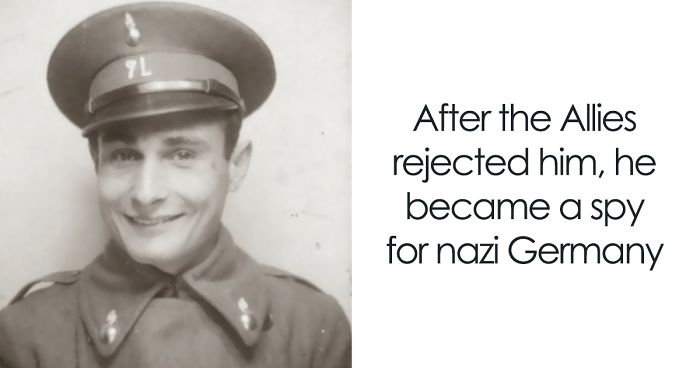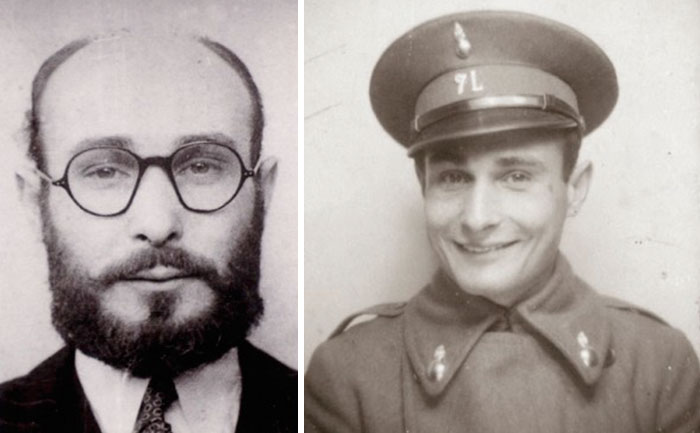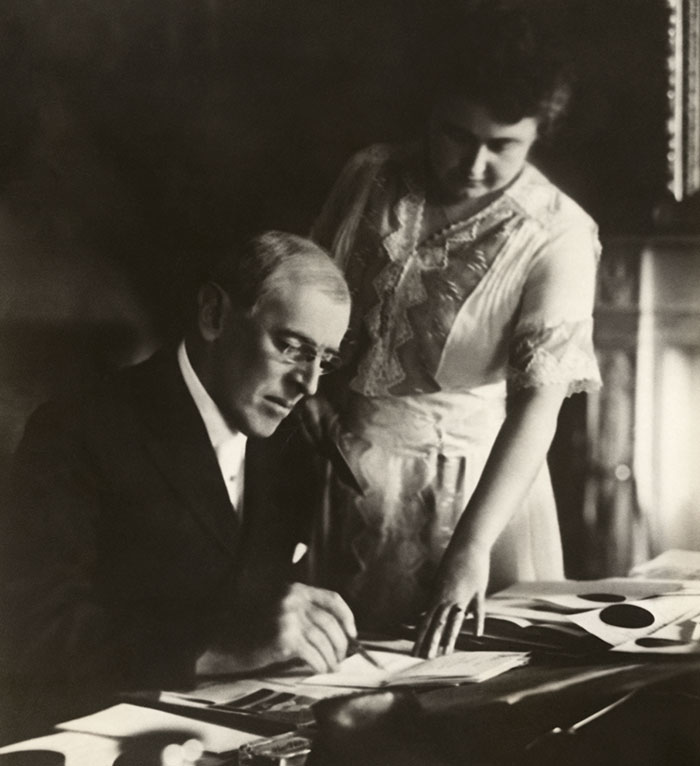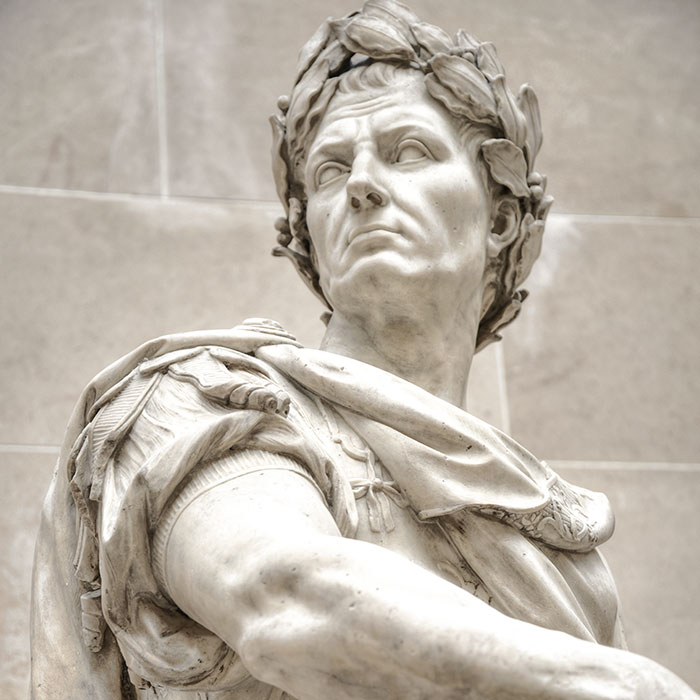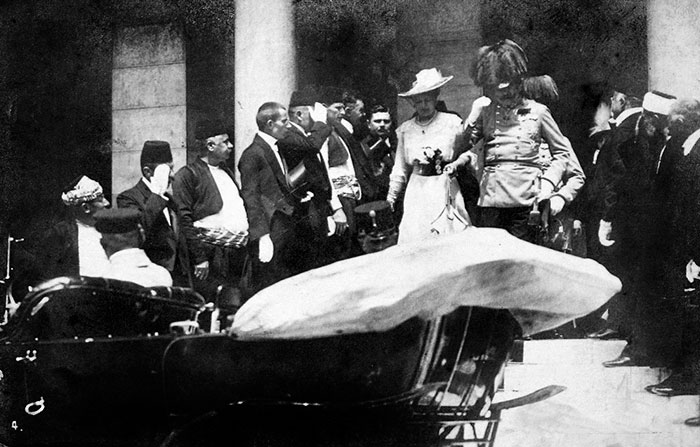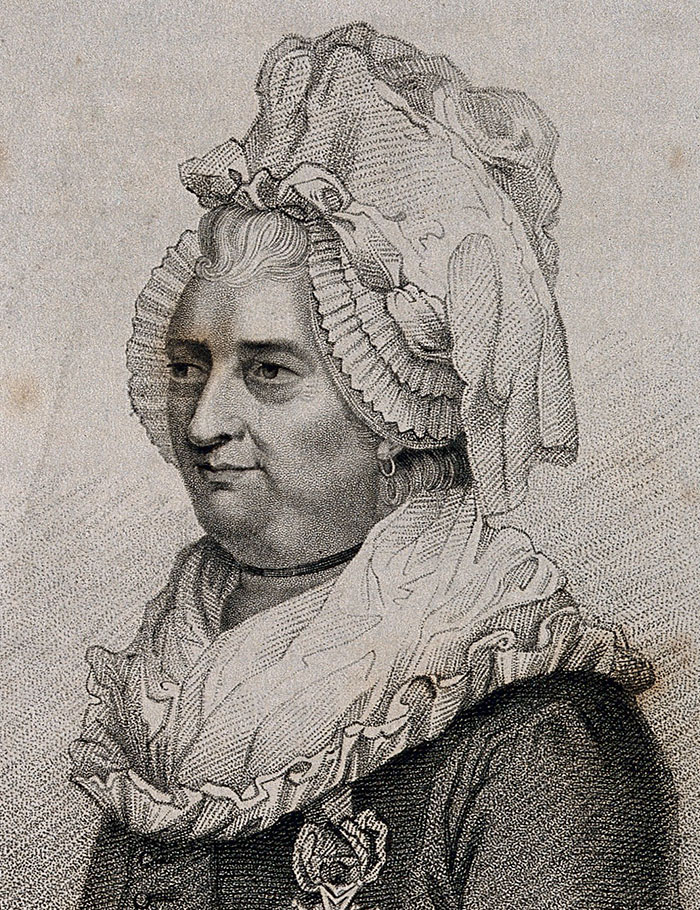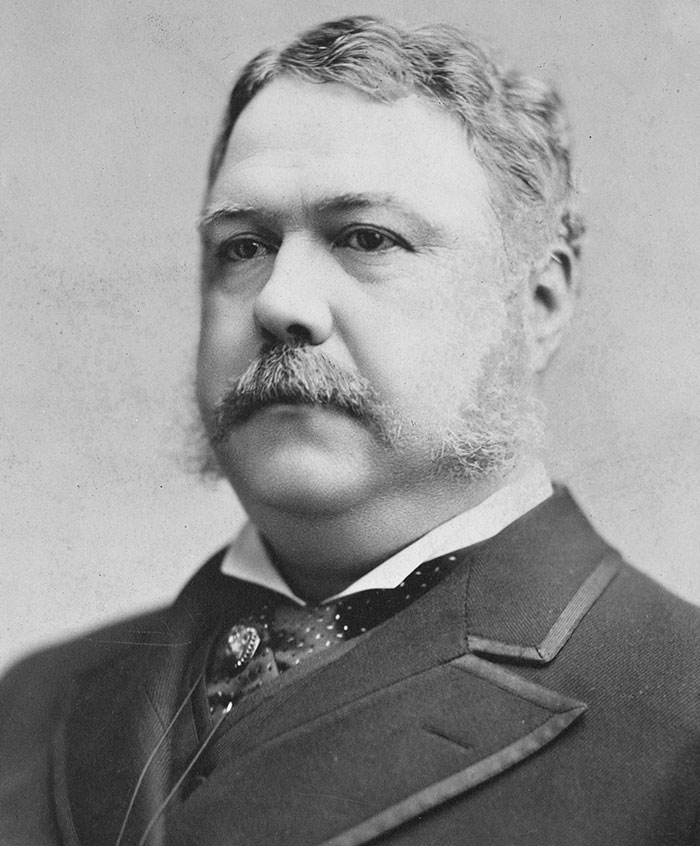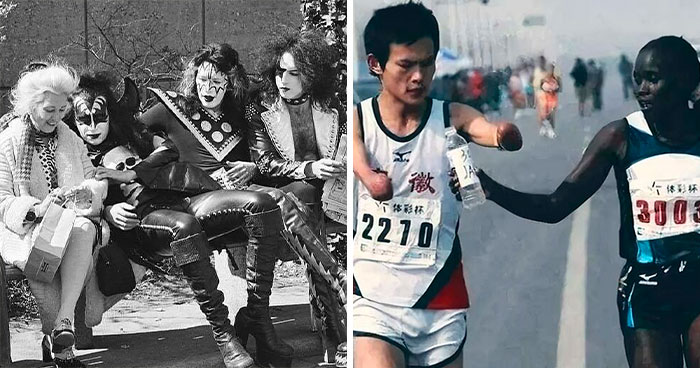There's a popular saying that history repeats itself, and perhaps it should make life all too predictable, but sometimes things don't always go according to plan. From the status of the first acting female president of the USA, to the series of unfortunate events leading to Archduke Franz Ferdinand's assassination, history is full of unexpected twists and turns. Even Julius Caesar, back in 75BC, had some tricks up his sleeve that left a bunch of pirates shocked, most likely betrayed, and very much dead.
So, scroll down below to see the shocking plot twists that occurred when people least expected them. And, oh, don't forget to comment and vote for your favorites!
This post may include affiliate links.
Juan Pujol García
During World War II, Spanish citizen Juan Pujol García, seeing the horrors of fascism and communism in Europe, wanted to make a change. He and his wife contacted American and British intelligence services to become a spy, but were rejected by both. So, he created a fake identity as a fanatically pro-Nazi Spanish government official and successfully became a German agent. He was highly respected and trusted for his wide network of spies and the information he provided.
The plot twist? Juan was actually a double agent working against Nazi Germany. He'd create fake reports using magazines, tourist guides and other public sources. Any misinformation spotted by the Nazis he'd blame on the spies in his network that were all made up. Pujol had a key role in the success of Operation Fortitude, the deception operation intended to mislead the Germans about the timing and location of the invasion of Normandy in 1944. As the Germans never realized they were fooled, García received the Iron Cross as well as Member of Order from the British Empire.
The First Female President Of The USA
You thought Hillary Clinton was aiming for this position? Too late, it's already taken. Woodrow Wilson was the 28th president of the United States, a highly public, renowned person. However, he suffered a stroke in October 1919 which left him partly paralyzed. Edith Wilson took over many routine duties and details of the Executive branch of the government from then until Wilson left office almost a year and a half later, on March 4, 1921. She decided which matters were important enough to be brought to the bedridden president as no one close to him could admit that he was unable to perform the duties of the presidency. While Woodrow Wilson withdrew from the public's eye, the privacy allowed Edith to take over most of her husband's duties and for a short while she essentially became the President.
Why the down votes for Remliel? Birth of a nation was a racist film that glorified the KKK - and was backed by Wilson.
Julius Caesar
In 75BC, Julius Caesar was traveling from Rome to the Greek city of Rhodes to study oratory, when his vessel was seized by Cilician pirates. They kidnapped Caesar and demanded a ransom of twenty talents, which Caesar was insulted by and demanded they ask for more. With a goal of 50 talents, Julius Caesar sent his followers to cities to collect the ransom, meanwhile spending time with the pirates. He treated them, the most bloodthirsty people in the world, so highhandedly that, whenever he wanted to sleep, he would send to them and tell them to stop talking. At times he jokingly threatened to have them executed, which pirates took for playfulness. After the ransom was paid and Caesar was set free, he manned some ships and captured the pirates which he then crucified as he had promised.
Assassination Of Archduke Franz Ferdinand
On June 28th, 1914, the Black Hand secret society sent 6 assassins to kill Archduke Franz Ferdinand. The first assassin, armed with a bomb, failed to act, as did the second one with a gun. The archduke's motorcade passed by the third assassin who threw a grenade at Ferdinand's carriage, but it detonated too late, exploding under another car and injuring around 20 people. The assassin swallowed his cyanide pill and jumped into the Miljacka river. Čabrinović's suicide attempt failed, as the old cyanide only induced vomiting, and the Miljacka was only 13 cm deep due to the hot, dry summer. The Archduke and his party reached their destination, but decided to visit the injured people in the hospital. They quickly realized they were taking the wrong route and the driver stopped the car to reverse. They happened to stop right at the place where Gavrilo Princip, one of the 6 assassins was standing. He took out his gun and shot the Archduke Franz Ferdinand in the neck, wounding the Duchess Sophie with a second shot. They both died within an hour. This was the event that kickstarted the chain of events that lead to the World War I.
Chevalier D'éon
Chevalier d'Éon, was a French diplomat, spy, Freemason, and soldier who fought in the Seven Years' War. He had androgynous features which helped him as a spy. He presented himself as a male and took up masculine occupations for 49 years, however as a spy he successfully infiltrated he court of Empress Elizabeth of Russia by presenting as a woman. From 1777, d'Éon dressed as a woman, identifying as female. He explained that he has been assigned female at birth and only raised as a boy so his father could collect inheritance from his in-laws. Chevalier d'Éon passed away in 1810. Doctors who examined d'Éon's body after death discovered "male organs in every respect perfectly formed", but also feminine characteristics, such as "breast remarkably full."
Chester Arthur
Chester Arthur was part of Morgan's Republican machine in New York, which was where he shifted his career path from law to politics. In 1871, President Ulysses S. Grant appointed Arthur to the lucrative and politically powerful post of Collector of the Port of New York. However, in 1878 he was fired from his job as part of a plan to reform the federal patronage system in New York.
A few years later Arthur became the vice president of the United States and following the assassination of President James A. Garfield 6 months later, Chester became the 21st president of the USA. To the surprise of reformers, Arthur took up the cause of reform, though it had once led to his expulsion from office and signed the Pendleton Act into law. He came into office with little trust from the public but retired with the utmost respect. "No man ever entered the Presidency so profoundly and widely distrusted as Chester Alan Arthur, and no one ever retired ... more generally respected, alike by political friend and foe." journalist Alexander McClure reported.
My personal opinion is that Arthur supported civil service reform because he knew he was terminally ill when he succeeded to the Presidency and had nothing to lose by backing reform.
All the kids say history is boring, right? Like, everyone hates learning it. Why don't they give kids this and then see what they think?
All the kids say history is boring, right? Like, everyone hates learning it. Why don't they give kids this and then see what they think?

 Dark Mode
Dark Mode 

 No fees, cancel anytime
No fees, cancel anytime 


